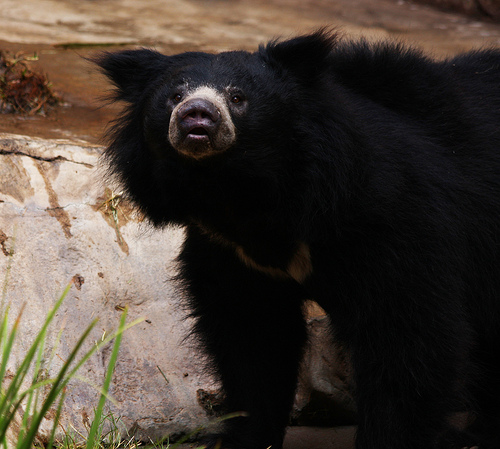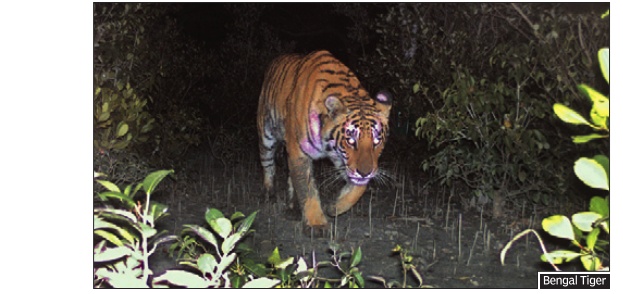The birth of tiger cubs is always good news when the species is under great threat of extinction. But the joy is a greater one when the cubs are of a tigress that was hand-reared by humans. Panna Tiger Reserve in Madhya Pradesh, which had witnessed total disappearance of tigers a few years ago due to poaching, is now celebrating the birth of two cubs to its hand-reared tigress T5. This is the first time the tigress has given birth and with the newest addition the tally of tigers in the reserve has gone up to 30 from a dismal zero in 2009.
Tigresses T4 and T5; born in May 2006 at Kanha National Park, in Madhya Pradesh lost their mother within days of their birth. The two were semi-wild and grew up inside an enclosure in the park on being orphaned. Officials took turns in feeding and caring for the cubs.
At the age of five when the young adults were strong enough to lead independent lives, T4 and T5 were carted and shifted to Panna Tiger Reserve.
T4 was the first of the two to be released into the wild in March 2011. In November 2011, tigress T4 became the world’s first hand-reared feline to give birth to two cubs. Again in 2014 T4 gave birth to its second litter, but abandoned them.
T5 was re-wilded into Panna on 13th November 2011.
“There were apprehensions about its survival in the wild, but she picked up soon, going for kills in the deep forest, where it met a lone translocated tiger, and mated,” said the reserve officials.
Previously, two re-located tigresses had given birth to eight cubs at Panna Tiger Reserve, of which six had survived. “But both were wild tigresses, unlike hand-reared and shifted like T4,” said the officer.
Re-building a Lost Home
The Panna Tiger Re-introduction plan is a success story which was planned and initiated in 2009 after all tigers of the reserve were killed or poached. When the relocation programme began in 2009, wildlife experts across the world were sceptical but now it is being hailed as the most successful try-out ever.
The first group of tigers to be re-introduced were two females T1 and T2 and a male T3 translocated from three different places to Panna Tiger Reserve. T4 and T5 joined them later.
While the re-introduction program started with 4 females and a male, the birth of cubs has now added to the population nine males and two females. Two males from the first litter of T1 have already established their territories in the park.

However, the officials at Panna Tiger Reserve are not taking it easy as yet. They believe that in 2009 other than poaching and loss of habitat it was also fights among the male tigers over their territory that resulted in the death of tigers. Hence, they are keeping a close watch on all the tigers to ensure that such territorial fights may be avoided.
It is certainly a reserve that needs all the good luck to restore its old glory as a preferred tiger habitat.
More Related Stories,
Save Genetic Diversity to Save Tigers
The Man who Runs with a Tiger (Photos)
Image of the Day: Tigress and Four Cubs in Ranthambore










Good to see the tiger population has grown from zero to 30 tigers in 5 years. Actually, the tiger re-introduction program should be done in the reserves with less tiger population. Thanks for sharing.
You are right Jithin. If tigers are translocated from one habitat to another where there numbers are less, it will help the forests as well as the tigers in getting enough spave to live.